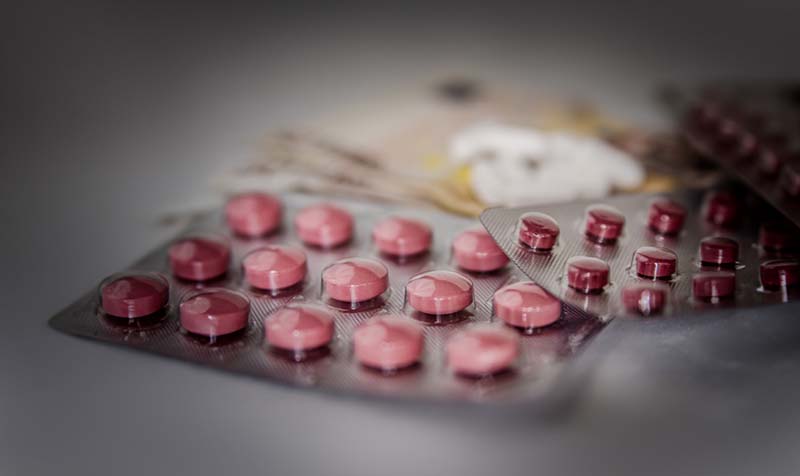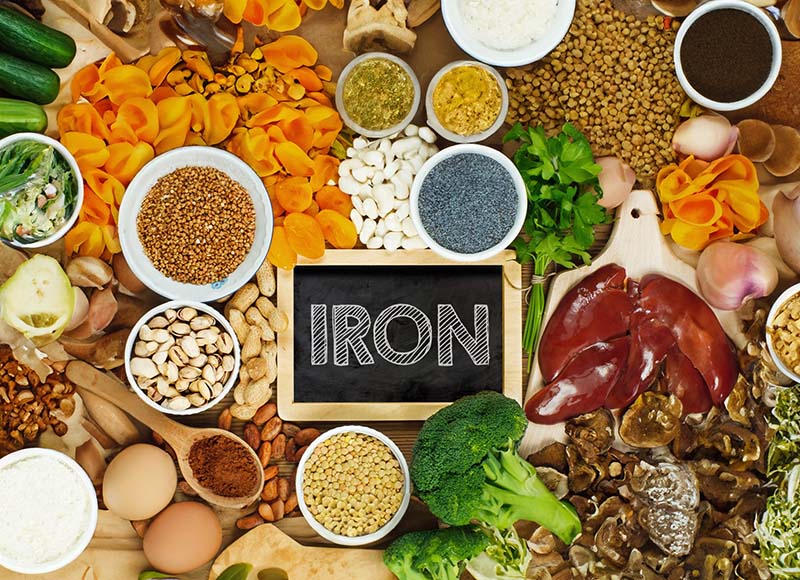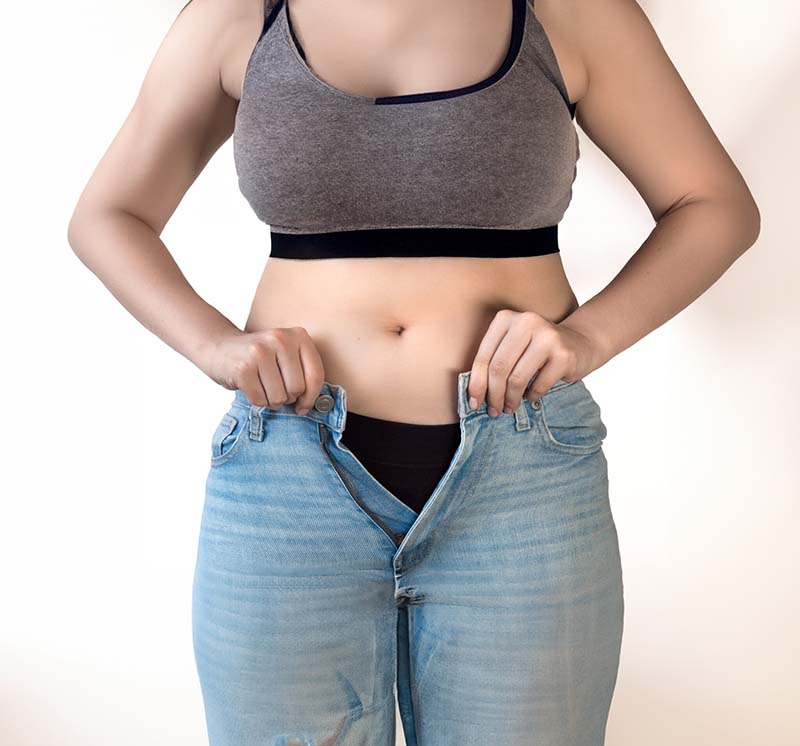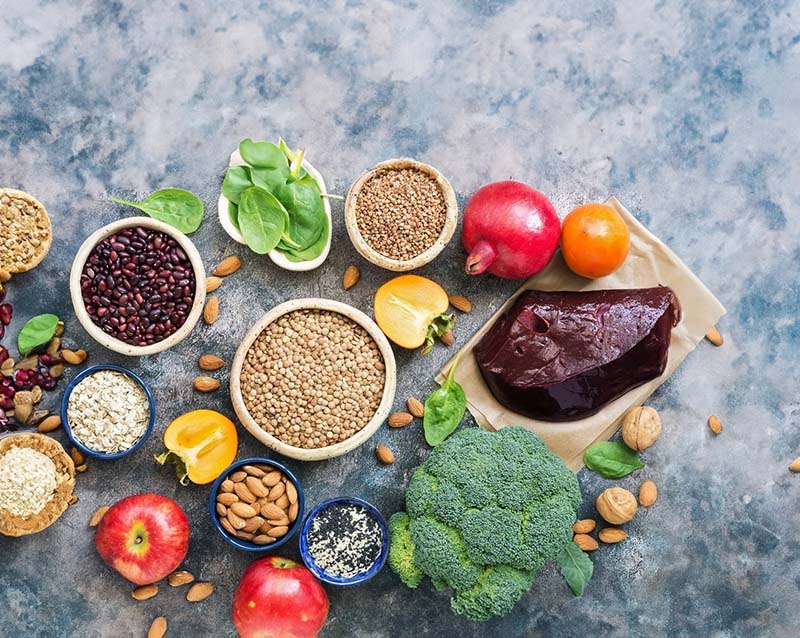Do iron pills make you gain weight? Iron deficiency is common in the U.S, especially among women of childbearing age, and can go unnoticed due to generic symptoms like fatigue and brittle nails. If you’re experiencing these signs, it’s wise to get your iron levels checked.
While iron-rich foods help, supplements are often needed for a quicker fix. However, they can have side effects, including potential weight gain. This article explores the link between iron pills and weight gain, providing insights into whether iron supplements can lead to weight increases.
1. What Are Iron Pills?
Iron pills are a common way to fix or prevent low iron levels in the body, which can lead to anemia if not treated. These pills help, but they can also cause some unwanted effects like constipation, diarrhea, feeling sick, throwing up, stools that look darker, stomach aches, and a taste like metal in your mouth. Taking too many iron pills can lead to a condition known as “iron poisoning.”
You can find iron pills in many forms – capsules, tablets, chewables, gummies, and liquids. They are available without a prescription or you can get them if your doctor prescribes them.

2. Why Do You Need Iron Supplements?
Iron plays a crucial role in transporting oxygen throughout our bodies, as highlighted by Paul Thomas, EdD, RD, from the National Institutes of Health’s Office of Dietary Supplements. It’s a key part of hemoglobin, found in red blood cells, which carries oxygen from the lungs to the rest of the body. Hemoglobin contains about two-thirds of the body’s iron. Without enough iron, your body can’t produce sufficient healthy, oxygen-carrying red blood cells, leading to iron deficiency anemia.
The lack of healthy red blood cells means your body doesn’t get the oxygen it needs. This can lead to fatigue, impacting everything from brain function to your immune system’s ability to fight infections, explains Thomas. In pregnancy, severe iron deficiency might increase risks like premature birth or low birth weight.
Iron also plays a significant role in maintaining healthy cells, skin, hair, and nails, as noted by Elaine Chottiner, MD, of the University of Michigan Medical Center.
Everyone needs iron every day, but people who follow a plant-based diet need 1.8 times more iron than meat eaters. This is due to the difference in iron absorption from plant (non-heme) and animal (heme) sources. Vegans and vegetarians, especially premenopausal women, need to be more mindful of their iron intake, as deficiencies are more common in those following a plant-based diet.
3. The Difference Between Heme Iron and Non-heme Iron
Iron in our diet comes in two varieties: heme and non-heme. Heme iron, found in animal products like red meat and poultry, is absorbed more efficiently by our bodies. This is because it uses specific transporters in the gut that allow it to pass directly into the bloodstream. Roughly 55-70% of the iron in these foods is heme iron.
Non-heme iron, which makes up the rest of the iron in animal products and all the iron in plant foods, doesn’t have this easy pass. It needs to be converted from ferric iron to ferrous iron before our bodies can absorb it.
When considering iron absorption, not all iron is absorbed equally. Heme iron from animal products is more readily absorbed compared to non-heme iron from plants. This means the type of iron you eat can be more telling of your total iron levels than the amount of iron you consume.

Another factor to consider is that certain compounds in plant foods, known as anti-nutrients, can inhibit iron absorption. These include tannins found in red wine and tea, oxalic acid in foods like cocoa and spinach, phytate in cereal grains, and phosphate in processed cheeses and spreads. Other foods like wheat bran, dairy, soy, and coffee also contain substances that can interfere with iron uptake.
The good news for those on a plant-based diet is that non-heme iron absorption can be boosted by adding vitamin C-rich foods to meals. Vitamin C, found in broccoli, red peppers, and oranges, can significantly enhance iron uptake.
4. The Role of Iron in Hemoglobin and Myoglobin
Iron is essential for your body to make two key proteins: hemoglobin and myoglobin. Hemoglobin, residing in red blood cells (RBCs), is responsible for transporting oxygen from the lungs to all parts of your body. It plays a crucial role in ensuring that every tissue and organ receives the oxygen delivered via your blood.
Myoglobin, on the other hand, is found in your muscles. Its primary function is to help deliver oxygen to muscle cells. If your body lacks sufficient iron, it struggles to produce these vital proteins. This shortfall can lead to iron deficiency anemia, which is, in fact, the most common type of anemia.
5. Side Effects of Iron Pills
When taking iron supplements, as with any supplement or medication, it’s possible to experience side effects. Generally, these side effects are mild, but they can become severe if the supplements are overused.
Typically, iron supplements are safe and well-tolerated when taken as directed. The common side effects you might encounter include:
- Stomach upset
- Stools that are dark or black in color
- Bloating
- Constipation
- Diarrhea
- Gas
- Feeling nauseous
- Stomach cramps
- Vomiting
- A metallic taste in your mouth
- Teeth staining, which can occur with liquid iron supplements

6. Do Iron Pills Cause Weight Gain?
There’s no strong evidence to say that taking iron tablets will make you gain weight. This isn’t a common side effect listed for iron pills.
A known side effect of iron supplements is constipation, as mentioned by the National Library of Medicine. Constipation might make you feel like you’re heavier, especially if it comes with bloating and makes your clothes feel tighter.

Some people think that their iron pills make them put on weight, but there’s not a lot of scientific proof for this. However, there was a small study in 2016 in the Egyptian Journal of Haematology that looked into this. They followed 33 people taking iron for three months. Out of them, 30 people gained some weight.
The three people who didn’t gain weight also didn’t have an increase in their hemoglobin – that’s the part of the blood that carries oxygen and has a lot of iron. The others who did gain weight seemed to gain more if their hemoglobin levels went up more.
But this was just a small study. We need more research to really know if there’s a link between taking iron and gaining weight.
7. Causes and Symptoms of Iron Deficiency
Iron deficiency anemia is a condition where the body lacks adequate iron, affecting the production of red blood cells. This deficiency can stem from several causes:
7.1 Blood Loss
Iron is a key component of red blood cells, so losing blood means losing iron. Women experiencing heavy menstrual bleeding are particularly susceptible to iron deficiency anemia. Chronic internal blood loss, possibly due to conditions like peptic ulcers, hiatal hernias, colon polyps, or colorectal cancer, can also lead to this type of anemia. Regular use of certain over-the-counter pain medications, such as aspirin, may result in gastrointestinal bleeding, contributing to iron loss.
7.2 Dietary Deficiency
Iron intake from diet is crucial for maintaining healthy iron levels. Low consumption of iron-rich foods can lead to a deficiency over time. Foods high in iron include meats, eggs, leafy green vegetables, and iron-fortified products. It’s particularly important for infants and children to consume sufficient iron for their growth and development.
7.3 Impaired Iron Absorption
The small intestine plays a vital role in absorbing iron from food into the bloodstream. Disorders like celiac disease, which impair nutrient absorption in the intestine, can cause iron deficiency anemia. Surgical removal or bypass of parts of the small intestine also impacts iron and nutrient absorption.
7.4 Pregnancy
Pregnant women are at increased risk of iron deficiency anemia as their iron stores must support both their increased blood volume and the hemoglobin needs of the growing fetus. Iron supplementation is often necessary during pregnancy.
Elaine Chottiner, MD, a clinical assistant professor and director of General Hematology Clinics at the University of Michigan Medical Center, highlights that many people are unaware of their anemic condition until symptoms emerge. These can include a pale or ‘sallow’ complexion, fatigue, and exercise difficulties.
Symptoms of iron deficiency anemia include:
- Profound tiredness and weakness
- Pale skin
- Chest discomfort, rapid heart rate, or breathlessness
- Headaches, dizziness, or feeling faint
- Cold extremities
- Tongue inflammation or soreness
- Fragile nails
- Cravings for non-food items like ice, dirt, or starch
- Diminished appetite, particularly in young children and infants with this condition
8. Tips to Get Your Daily Dose of Iron
If you’re worried about gaining weight while taking iron supplements, here are some easy tips to keep your weight in check:

- Eat Iron-Rich Foods: Include foods like lean meats, chicken, fish, beans, and cereals with added iron in your meals. These foods are good natural sources of iron, which might lessen the need for strong iron pills.
- Watch Your Calories and Stay Active: Keep an eye on how much you eat and make sure to stay active. Doing regular exercise helps burn off calories and keeps your weight steady. It’s important to balance the calories you eat with those you burn through activity.
- Pick Healthy Foods If You’re Hungrier: Iron pills can sometimes make you feel hungrier. If this happens, go for healthy options like fruits, veggies, whole grains, and lean meats. These foods give you the nutrients you need without too many extra calories.
- Drink Lots of Water: Drinking enough water is really important for your health and can help you manage your weight. Water can make you feel fuller, especially if you drink some before meals, which might help you eat less.
- Talk to Your Doctor If You’re Worried: If you notice you’re gaining weight unexpectedly or have other concerns, chat with your doctor. They can give you advice that’s just right for your situation.
9. Conclusion
In conclusion, the question “Do Iron Pills Make You Gain Weight“ is one that many people consider when starting iron supplements. As we’ve explored, the key to managing weight while taking iron supplements lies in a balanced diet rich in natural iron sources, monitoring calorie intake, staying active, choosing nutritious foods, and staying hydrated. It’s also crucial to have open communication with your healthcare provider for personalized advice.
We’d love to hear your experiences and tips on this topic! Have you noticed any changes in your weight while taking iron pills? What strategies have worked for you? Share your stories and feedback with us. Your insights could be immensely helpful to others facing similar concerns.
Don’t forget to check out more informative and engaging blogs from Biosculpture for a wealth of information on health, wellness, and nutrition. Your journey to better health is important to us, and we’re here to support you every step of the way.


